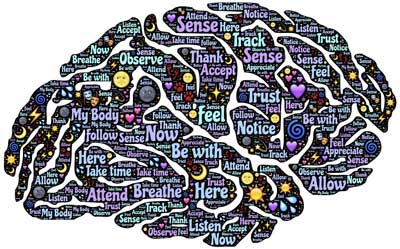The major focus of yoga is the modification of one’s awareness of self in relation to others and the world. Through the practice of asanas (yoga postures), the individual develops an evolving capacity to control the body and, via this route, the mind. The sage Patanjali wrote the Yoga Sutras prior to 400 CE. These sutras contain a codified system for developing self awareness.
This system is comprised of eight different limbs. Mastery of all of them leads to enlightenment. Asana is one of these limbs. By disciplining the body, an individual becomes more open and receptive to the mental work and introspection that are integral to the practice of yoga.
Each individual’s level of body tension and idiosyncratic body habits are a reflection of their internal mental states. Posture usually reflects how we are feeling emotionally. Once a posture is being habitually adopted, it can then lead to reinforcement and amplification of this emotional experience.
Yoga postures provide a framework for systematically exploring body alignment, releasing tension and correcting poor postural habits. In order for an individual to progress, they will inevitably go through a process of building more self awareness of these habits. With regular practice there is then an experience of letting go and being able to correct these habits. This creates a sense of physical and mental wellbeing. Personal growth becomes a natural development as an individual continues with their practice.
Learn Iyengar yoga online with expert guidance.
Stream unlimited Yoga Selection classes and build a home practice that gets results.
Try it free for 14 days. Cancel anytime.
